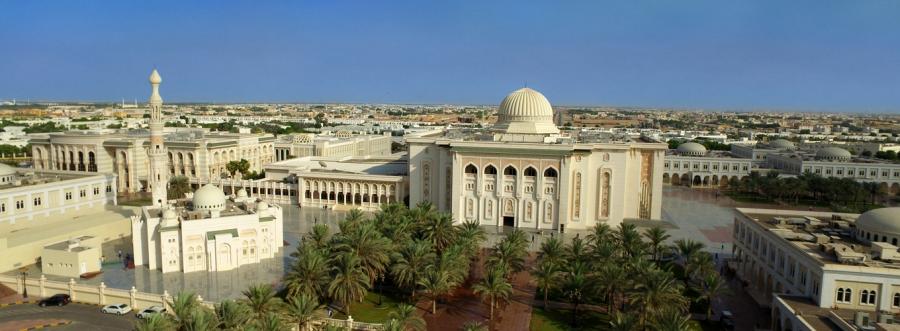- About
- Admissions
- Study at AUS
- Prospective Students
- Bachelor's Degrees
- Master's Degrees
- Doctoral Degrees
- Admission Publications
- International Students
- Contact Admissions
- Grants and Scholarships
- Sponsorship Liaison Services
- Testing Center
- New Student Guide
- File Completion
- New Student Orientation
- Payment Guide
- Executive Education
- Students with Disabilities
- Academics
- Life at AUS
- Research
- Contact Us
- Apply Now
- .

Maintenance and Sustainability: Decision Support Tools and Role of Maintenance Digital Transformation (March 2023)
PhD dissertation final oral defense presentation by PhD-ESM candidate Afef Saihi
Maintenance is a crucial activity conducted throughout the use phase of the engineered object life cycle, which has tremendous impact on all three pillars of sustainability. While economic and technical impacts of maintenance activities are well-studied and vastly addressed in the literature, the associated impacts on the environmental and social pillars are not sufficiently tackled. As such, maintenance related decisions, in all its facets, have been mostly driven by these economic and technical measures. Full integration of sustainability considerations into maintenance practices requires close monitoring, measurement and assessment of maintenance impact on the triple-bottom-line through relevant key performance indicators (KPIs) and appropriate decision-support tools that take into account various pertinent sustainability issues. To that end, there is a need for further research concerning the integration of all sustainability aspects into maintenance practices along various directions, including (1) developing adequate and relevant KPIs, (2) proposing models for accurate maintenance sustainability performance evaluation, (3) exploring the role of technology in enabling this integration, and (4) devising sound decision-making tools.
Therefore, this research addresses the existing gaps and aims to develop effective tools for integrating sustainability aspects into maintenance decisions practices and to explore the challenges that hinder the adoption of these aspects and the potential role of technology in overcoming such challenges. First, a comprehensive, multidimensional and hierarchical framework of sustainable maintenance performance indicators is developed and validated by experts in the field. Using this framework as a guide, a fourth-order Partial Least Square-Structural Equation Modeling (PLS-SEM) based higher component model for measuring sustainable maintenance performance is proposed and validated in the oil and gas industry.
Furthermore, given that digital transformation (DT) of maintenance can play a pivotal role in facilitating the integration of sustainability issues in maintenance decision-making, it is crucial to identify the key ingredients and the most influencing factors, beyond purely technological aspects, that drive the success of digitalization efforts. Then, a hybrid reactive Delphi approach is adopted to identify and validate the key factors driving the success of maintenance DT and aiding its implementation. Finally, a first-step is taken towards proposing maintenance planning models that integrate sustainability in the decision-making process.
PhD Supervisors: Dr. Mohamed Ben-Daya and Dr. Rami As’ad, Department of Industrial Engineering

